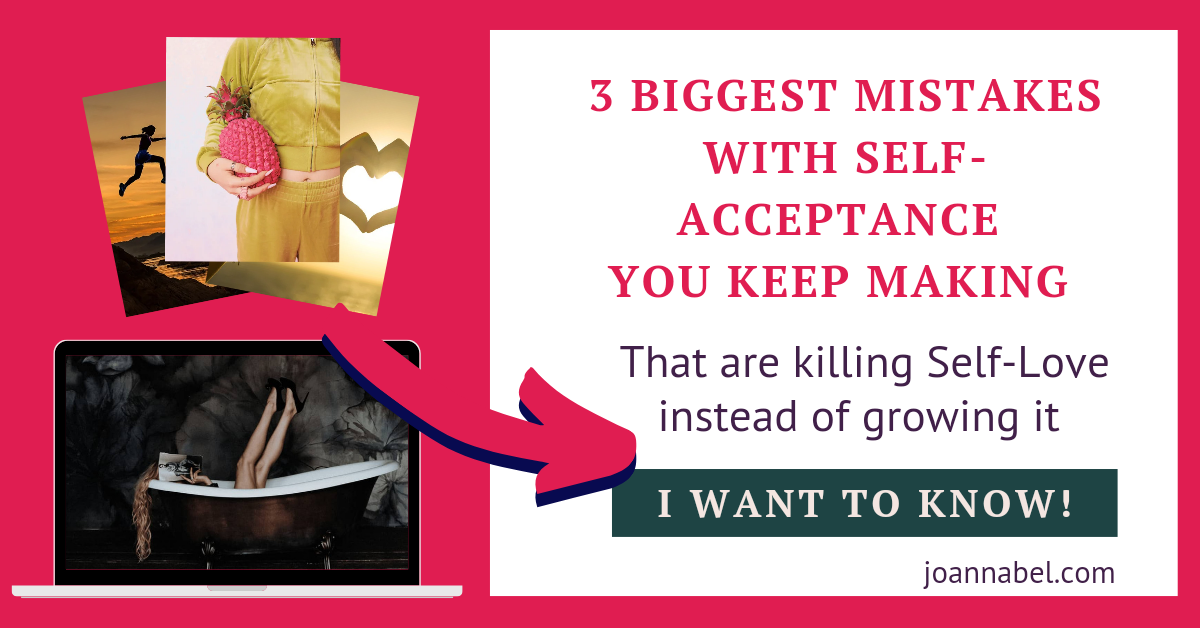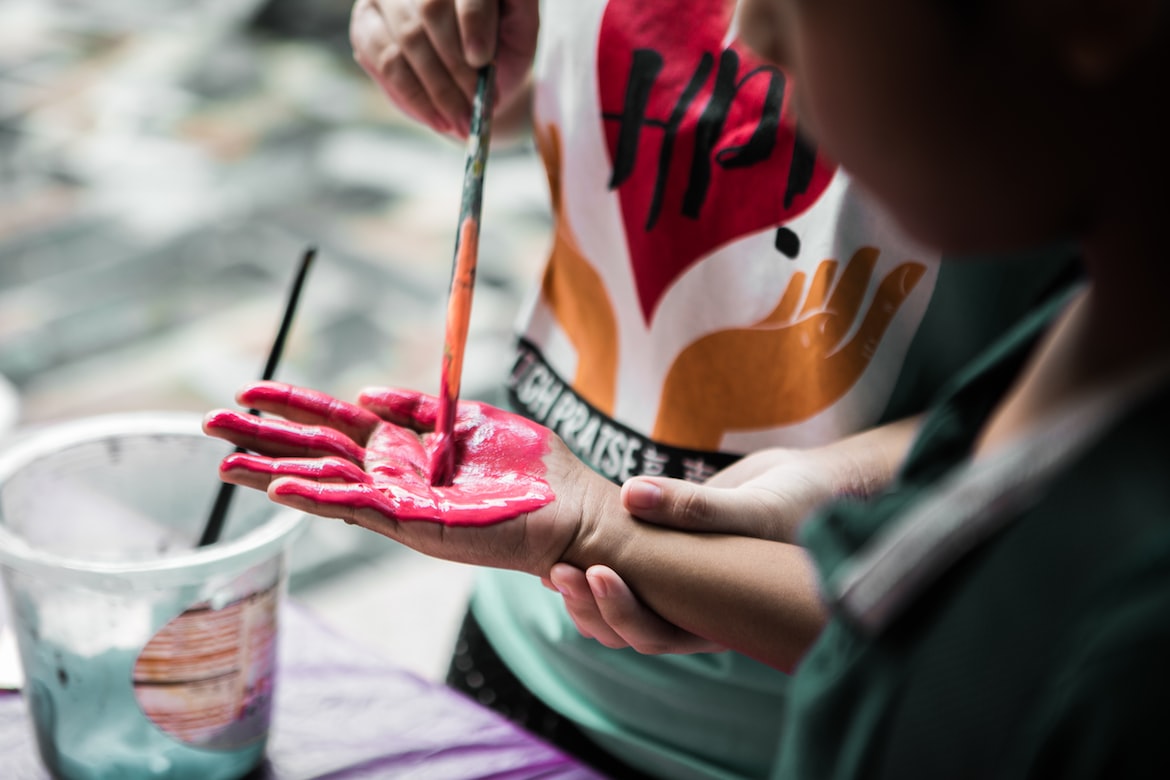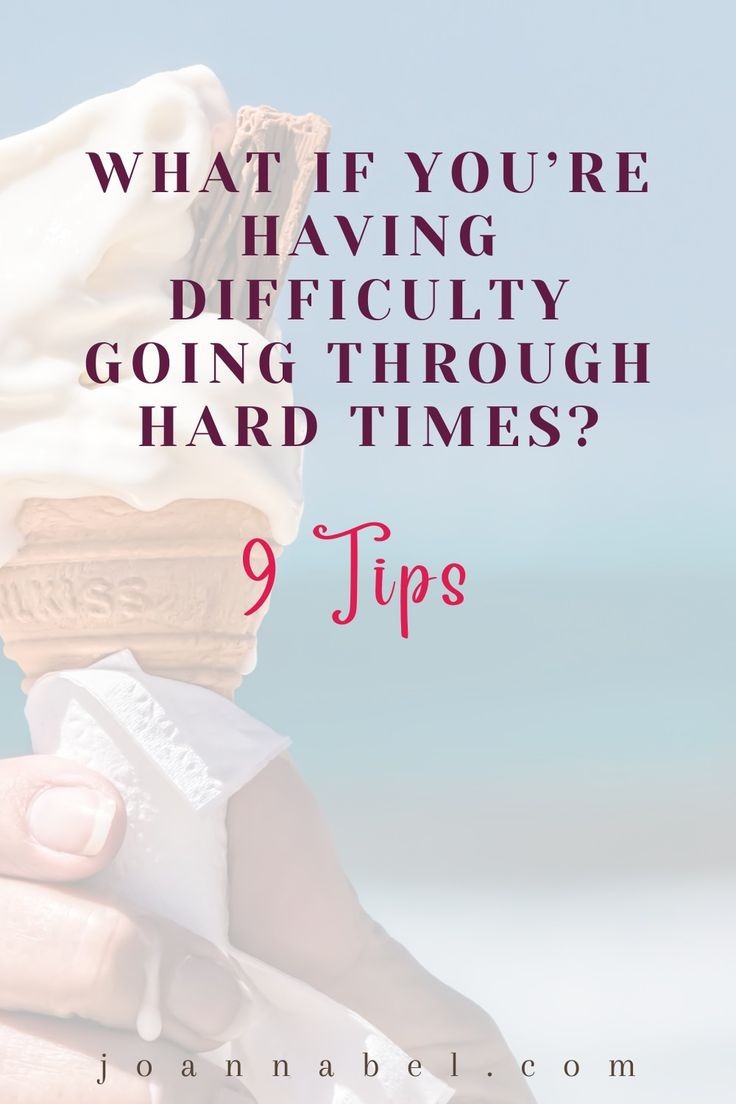In the face of adversity, it is natural to experience a range of emotions, such as sadness, fear, and uncertainty. And this can make us believe we are trapped in a never-ending cycle of struggle, with no clear path forward. And we may be having difficulty going through hard times.

Having Difficulty With Going Through a Tough Time
However, it is important to remember that tough times are an inherent part of the human experience, and they offer us opportunities for growth, self-reflection, and personal transformation.
In this post, we will explore the various aspects of having difficulty during hard times and discuss strategies to help you navigate these challenges even with resilience and grace.
By cultivating self-compassion, practicing mindfulness, and seeking support from loved ones, you can find the strength to endure difficult moments and emerge stronger on the other side.
Remember, every storm eventually passes, and with each trial we face, we also have the opportunity to develop the tools and wisdom necessary to weather future storms more effectively.
Together, let’s explore the path of navigating through hard times, empowering ourselves to rise above the challenges and forge a path towards a brighter future.
We can start with our first tip if you’re having difficulty going through a tough time.
This post has affiliate links which means that we make a commission from qualifying purchases at no additional cost to you. For more information read our Affiliate disclosure.
Note: Although I am a Clinical Social Worker, engaging with this website does not establish a professional social worker-client relationship. The information provided here is for general purposes only and should not be considered professional advice. While we strive to ensure accuracy and reliability, this content is not a substitute for professional guidance. For specific concerns, issues, or situations, it is essential to consult a qualified professional and present your situation. Read the full Disclaimer here.
9 HELPFUL TIPS IF GOING THROUGH HARD TIMES IS CHALLENGING

#1 MAKE SURE NOT TO AVOID FEELING YOUR EMOTIONS
This may seem or sound redundant to say, but hear me out. Oftentimes, people do not let themselves feel the emotions because they are uncomfortable and unpleasant, and then they try to block them by expressing something like frustration or even rage.
And then they may believe that this is it, that this is enough.
They may do this because they lack the skills to self-soothe or because they believe that emotions are unbearable or that pain should be avoided at all costs.
But this is protecting ourselves from feeling the emotions that are in alignment with the situation we’re in—for example, sadness as a response to loss or anger as a response to harm or betrayal.
And when we do this, we prolong the recovery or even prevent it, which is why we may end up at square one even years later.

Now, I’m not saying all consequences or damaging events can disappear, but what I am saying is that we can make it all so much worse by avoiding emotions.
Some people will block the pain by drinking, for example, or by being very reactive to what’s happening to them and trying to take as many actions as possible to mitigate the effects of hurtful actions or events, but they still won’t be able to erase what happened.
No matter how hard they try.
And considering it did happen, we need to let ourselves experience these emotions, let them be, and over time they’ll lose their grip or pass.
You can share them with others, like someone you trust, or you don’t have to, but it’s important that you let yourself feel them.
Again, if you’re scared or can’t do it alone, get the necessary help; you’ll be so glad you did it.
Someone trained can feel your feelings with you and create the safe space for you to do so.
You may want to read also:
2. BE GENTLE WITH YOURSELF THE SAME AS USUAL OR MORE
If you tend to be gentle with yourself, you should keep up the good work, but if you tend to be very hard on yourself, this will make the process of healing more difficult. That’s because you’re putting too much blame on yourself for being where you are or feeling the way you do. Or you’re adding another layer of blame on top of the one you’re already feeling because of the situation you’re in.
So, first of all, if you’ve been wronged in any way, understand that you’re not to blame for this and that you’re not flawed because of what happened to you. And on the bright side, you can learn from it so that you know better next time. Considering that next time you can spot the red flags, for example, or maybe make a different decision that will take you to a completely different outcome.
Of course, this doesn’t mean that you could’ve necessarily prevented certain outcomes. However, if you couldn’t, then the valuable “lesson” after this experience may be that you’ll know how to cope with something similar or even potentially become more resilient. Something like a learning opportunity.
Secondly, if you’ve come to the conclusion that it’s not your fault and nothing is wrong with you, then focus on being kind to yourself while you’re hurting, or else you’ll slow down the process of recovery and healing. You can do it by becoming more mindful of your self-talk, by taking some time off, or by letting yourself off the hook.
Just keep in mind that you don’t need to put yourself through even more difficulty by not showing up for yourself.
Finally, if you need help with this, don’t hesitate to get it, as there are many people who are skilled or trained to support you along the way.
You’ll probably find helpful:
3. USE YOUR REGULAR NURTURING SELF-CARE OR SELF-SOOTHING PRACTICE OR CREATE/LEARN A NEW ONE
If you’ve already focused on self-care, meaning that you know what’s helpful for you, especially when things are hard, and this is a “healthy” practice, then go for it.
Considering this is what you need now that you’re having difficulty going through a hard time.
On the other hand, if you’re used to following others or trends regarding self-care, I would advise you not to go this route, as this way you may even prolong your recovery.
It may seem at first that you’re doing a little better, but this is just a temporary thing because you’re not finding what suits you and you’re not learning how to really take care of yourself, self-soothe, or create more calm.

If what happened to you or what you’re going through is very consuming or taking a toll on your mental health, I suggest that you get the right help and support you need from a mental health professional.
They will deliver mental health aid, and afterwards they can help you find the self-care style that will be most helpful to you.
Additionally, they can help with self-exploration, personal goals, and even decision-making.
You may want to read also:
#4 CONSIDER GETTING HELP
I’ve mentioned this already a few times, so it’s only logical to emphasize it. There are different ways in which you can help yourself, or someone else can support you or help you.
What’s important is that you have faith that getting better is possible for you. Despite the fact that it may seem very challenging or even impossible right now, you have to understand that you can’t always trust your thoughts that say you can’t be helped.
Moreover, your brain is here to protect you, and to be able to do so, at times, to conserve energy while you’re down, may lead you to believe that there’s no point in trying anything because everything is so demanding and energy-inefficient. But you shouldn’t trust it about this.
You can get better, and there’s always a way out, but you have to take the first step and get the help you need. You can talk to someone you trust who is open-minded and non-judgemental and be honest about what’s going on, as most people will come through, and most people have the desire or even urge to help and be useful.

They can help you get the help you need or brainstorm with you about your options and preferences.
You don’t need to do what someone or everyone else is doing, considering not everything is for everyone and there are no one-size-fits-all solutions.
However, you can do your research to understand more about why some things may have helped many people or why some other haven’t.
#5 AVOID SHAMING AND BLAMING YOURSELF
I mentioned something about this at the beginning of this post, but I need to emphasize it more. If you’re blaming and shaming yourself because you’re having a hard time, you’re blocking yourself from getting better, which would’ve happened over time if you were to let yourself off the hook.
By shaming and blaming yourself, you’re actually punishing yourself for what happened to you but not doing much to move on and grow from this situation. This is a form of resistance where you don’t allow yourself to really look at what happened and collect valuable lessons, no matter how hard they are.
Moreover, if we were to dig a little deeper, this shaming and blaming isn’t really taking accountability for your situation.
And for some who are having a hard time because they’ve done something to someone else, it’s actually avoiding responsibility, no matter how counterintuitive it may sound.
3 Biggest Mistakes With Self-acceptance

That’s because they are not doing what it takes to redeem themselves and make amends; otherwise, they wouldn’t be still blaming themselves to the point where they have a hard time letting go.
So if they were less focused on themselves, they could do whatever it takes to make things a little better or learn to do better next time, and then they would’ve already felt better.
Now, what’s also important to mention is that shaming yourself is a mechanism aimed at feeding perfectionism, which means that you’re not focused on the right thing. The “right” thing would be to let all the emotions be, learn the lessons you need to learn, do the things to make up (if there’s a need for that), and find ways to move on.
Even though shame and blame have their place and we should feel them, it’s one thing to use them as a reflecting point that’s helping us navigate through the situation, and a completely different one if we use them as a defense mechanism to avoid doing the uncomfortable things or feeling emotions that are less comfortable that we need to feel to be able to move on.
Plus, we’re making it much harder for ourselves if we continue down this route, even though it may seem otherwise at the moment.
If you found the information on the blog helpful & inspirational and you feel like giving back, you can do it by clicking the donate button after entering amount you’re comfortable with. I’ll use it to create and deliver more useful content and resources like this. Thanks for your precious contribution!
You’ll probably find useful:
#6 RELY ON CREATIVE EXPRESSION A LITTLE MORE OR ON OTHER WORK YOU LIKE DOING
It’s ok if you need time to collect your strength, pull yourself together, and not be productive. It’s necessary to take a break and rest when things are hard.
However, if you feel that you could immerse yourself in some creative work or any work you like doing because it relaxes you or makes you feel good, you should go for it. As this can be very helpful and beneficial for you and even for others, potentially.
It is known that people’s best work and even masterpieces have been done during the hardest times.
Plus, if this is a good form of distraction from being over-consumed by something, that can be a good thing, as we’re giving ourselves space to heal and recover.
Considering that we tend to focus on productivity and efficiency, we tend to restrict ourselves from focusing on our hobbies or some other work that we enjoy.

Therefore, now may be the time to let yourself do things that feel good, are nurturing, or feel the most nurturing.
You can even find these things if you haven’t already; just let yourself experiment a little and not having to get it right all the time.
Moreover, you don’t have to be good at them, it’s only important that you be more gentle with yourself throughout the whole process and that you enjoy it at least a little and sense some relief and comfort.
At those difficult times, many people tend to make things even harder for themselves by punishing themselves because they aren’t as efficient or because they are less concentrated than usual.
But you have to know that when emotions are high, cognition is affected, and you may even have a hard time thinking clearly. This is normal and expected.
And it means that you need to take this into account, and instead of being strict with yourself, you need to do the exact opposite and be kind to yourself.
And soon you’ll see that you’re starting to get a little or even a lot better.
#7 CONFIDE IN SOMEONE YOU TRUST
Sharing can be very helpful, as it’s beneficial for letting things out and determining what it is that’s hurting, torturing, and even hounting us.
Sometimes things seem bigger than they are, and this is a good mechanism to make them lose their grip on us.
And other times, this can come as a relief, as we don’t feel so alone when we confide in someone, and we let things finally get out instead of being hidden and lurking in the dark shadows.
Just keep in mind that not all people are very good at showing support, and it may not be their fault; it’s just that people are not educated on this, even though that’s one of the most important things we should be taught in life.
Additionally, some people lack the capacity for this, which is why you need to think for a moment and try to imagine if the person you intend to open up to has shown capacity in the past.
I’m not saying don’t give people a chance.
All I’m saying is to be careful and cognizant of the fact that past behaviors can be good indicators for the future.
If you are certain that you’ve chosen the “right” person, then I suggest that you go for it, as people who have the capacity usually come through. Plus people usually want to help and be useful for others.
And people also want to be fair.
Even if the folks with capacity to support others aren’t as skilled, they could still be good confidants because they can sense what are good things to say or how to show support.
Overall, choosing to not be so alone in your hurt, grief, sadness, feeling of betrayal, powerlessness, or other feelings is a better choice than being isolated and lonely. (Except when solitude is something you really need right now.)
It may help you heal faster as well as feel understood, respected, and appreciated.
#8 GIVE YOURSELF ENOUGH TIME TO MOVE ON
Giving yourself enough time to move on is very important, as many people tend to prolong their recovery because they expect to be better either instantly or faster than this is possible.
Some may even try to avoid acknowledging that they’re not well.
In theory, you can bounce back from adversity rather quickly.
However, this may not be the case for many, which isn’t a bad thing because, firstly, some things take more time and, secondly, some people are more resilient than others.
And this is just a fact, not something we need to qualify as good or bad in comparison to our situation.
If you can’t bounce back as fast, you need to accept this and not fight it, as putting up resistance will only make things harder for you.

Accept your situation and give yourself what you need—if it’s more time, give it to yourself.
If it’s support, ask for it or look for it.
If it’s rest and respite, get them.
Just don’t create more harm or damage for yourself by disregarding reality concerning how much time or space you really need to be able to heal and move on with your life.
It can be very dangerous to believe that having a hard time is a sign of weakness or not being strong enough, and it’s a false assumption.
This only means that you’re human, not weak. So be human.
If you feel like you could benefit from becoming stronger and more resilient, there’s nothing wrong with that, and you can do that.
But if, at this moment, this hasn’t come yet, you need to acknowledge this and give yourself what you need right now. And not what you could need in the future when things are different.
Read also:
#9 CALM YOUR MIND AND BODY – MEDITATE OR PRAY
Religious and spiritual practices can be helpful in trying times and are also considered strength if one can rely on them for coping. As well as for managing to focus on strength more than struggle.
If you are a religious individual, you should rely on religion. Naturally, this won’t mean you’ll avoid doing the things you need to do because you won’t use religion as a resource to avoid confronting or dealing with things that are happening to you.
Therefore, prayer may be helpful, create more calm, and bring hope.
When it comes to meditation, it’s used in different religions, but it’s also a practice independent from them, and you can practice it if you’re not religious or if you are atheist.

This is concentrating and focusing on one subject and bringing attention to the present moment, which can be used for calming but also problem solving.
Especially if you use a form of active meditation where you are also trying to reduce the number of thoughts but are not trying to eliminate all of them, but are rather focused on something important to you right now trying to brainstorm solutions or solve problems.
If you decide to try guided meditation(s) applicable to your particular situation, you may begin the healing process rather quickly.
This is because meditation positively affects the brain and your nervous system.
I’ve been practicing it as a spiritual and not religious practice and have found many benefits, such as better sleep, more calm, no-stress problem solving, ideation, creative inspiration, and more.
Latest Posts:
- Gifts for Your Teenager That They’ll Actually Enjoy

- 6 Reasons Your Teenagers Seem Distant and Distracted

- Special Gifts to Let Someone Know You’re Thinking of Them (13)

- 100 Ways to Challenge Yourself (Without Stretching Yourself Too Thin)

- What To Do When Your Parent Struggles With Alcohol

- How To Navigate Moving to a New Home With Your Kids

Recommended Resources For You:
FINAL THOUGHTS ON HAVING DIFFICULTY GOING THROUGH TOUGH MOMENTS
It is essential to remember that difficult periods also offer us opportunities for self-growth, self-exploration, and even personal transformation.
Throughout this post, we have explored various strategies to help you navigate having difficulty going through difficult times.
We have learned the importance of acknowledging and accepting our emotions, cultivating self-compassion by being gentle with ourselves, and seeking support from our loved ones.
We have also emphasized the significance of delving into our creativity, practicing mindfulness and meditation, and prioritizing self-care.
While the journey through difficult times may be filled with obstacles and uncertainties, it is crucial to hold onto hope and believe in our ability to overcome hardship.
By not being focused only on the challenges we face and approaching them with courage and determination, we can even expect to emerge from these hardships stronger, wiser, and more resilient than ever before.
Remember that you do not need to be alone in your struggles, so reach out to others for support, share your experiences, and accept a helping hand from those who may be skilled to offer support.
I hope you found this helpful and I’ll see you in my next post! Before you go, read my post:

3 Biggest Mistakes With Self-acceptance









Leave a Reply